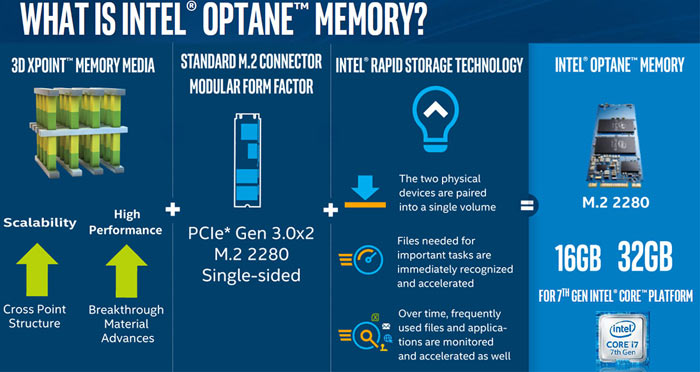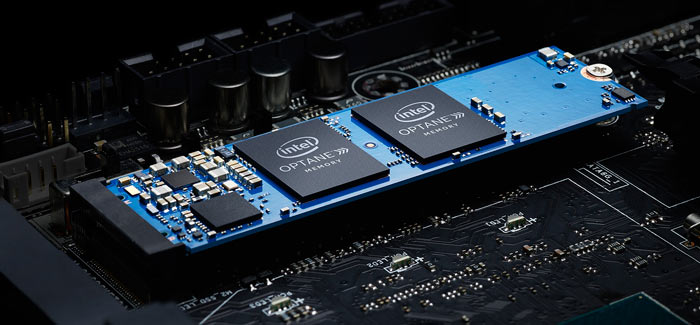Earlier this week Intel launched the first Optane products for consumers: its 16GB and 32GB Optane Memory M.2 modules. When we first heard about Optane it was all about offering faster than SSD performance - existing in the space between SSD and DRAM - but these limited capacity modules are targeted at the "79 per cent of desktop PCs," still using HDDs as primary storage. It might be fair to assume that a good proportion of these are utilitarian pre-built systems, many using Pentium or Celeron processors. But that's a snag…

It was already well publicised that Optane requires an Intel Kaby Lake processor / 200 series motherboard and motherboard makers have been updating BIOS downloads to support the new 'memory' devices this week. However, there is another caveat, as spotted by the TechReport. In the official list of requirements to support Optane technology Intel states users must have a Core i3, i5 or i7 Kaby Lake processor equipped. This leaves non-Core processors like Pentiums and Celerons, lower power 'T' chips, and even the Core-Y series laptops in the cold, even if they are indeed seventh generation processors. This lack of compatibility isn't a promotional website blurb oversight, as it's backed up by individual processor ARK database entries.

Since Intel is actively marketing the new consumer 'Optane Memory' cache drives as ideal for boosting budget-friendly mainstream systems with hard drives as their sole storage devices, it seems to have shot itself in the foot. If building a new system with Optane cached HDD primary you will have to budget for at least a Core i3-7100 which adds $65+ to your build price, says the TechReport. It suggests dropping the entry level 16GB Optane M2, the Kaby Lake i3, and 1TB HDD in favour of something like an OCZ SSD with 480GB of storage. However, as with any PC build decisions there are almost endless permutations to consider.
click to zoom and read small print
Unfortunately, as yet, we at HEXUS haven't had any time with these new 'Optane Memory' caching products in order to assess them and see if they are worth considering. It is hoped that any Micron produced 3D Xpoint consumer drives don't include processor family restrictions.














